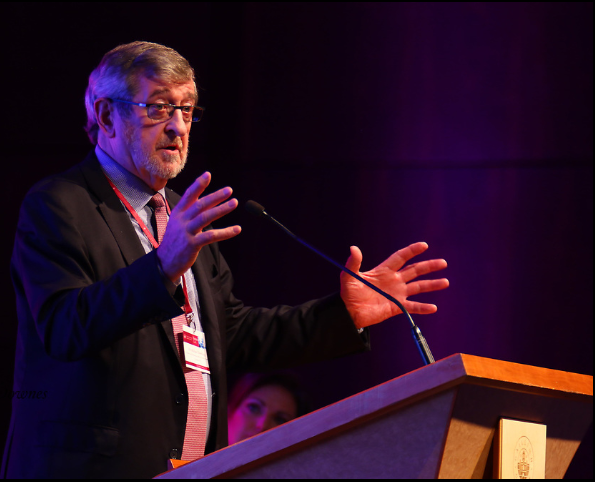
The College of Medicine, Nursing and Health Sciences at University of Galway have been delivering healthcare education for almost 175 years. Since our inception, our central mandate has been to train the next generation of health professionals and scientists. During that time, we have served the local and regional community and have acquired a sustained reputation of excellence in graduating a highly skilled clinical and biomedical workforce. Our College is representative of our region, with academies in Letterkenny, Sligo, Castlebar and Ballinasloe, a geographically dispersed campus that sets us apart nationally. Our mission remains constant in the provision of a healthy society through education, research and innovation.
Our College has a strong and vibrant tradition of excellence in training the next generation of healthcare professionals. Our future success, therefore, is critically dependent on our ability to evolve, to develop innovative training programmes that meet the dynamic and rapidly transforming needs of healthcare and population health. At present, we have two key challenges. The first is quantitative, namely the accelerating national shortages of healthcare workers across all professions, including areas of medicine, nursing, pharmacy, radiography, dietetics/nutrition and Health and Social Care Professions. These staffing deficits are preferentially affecting rural and underserviced regions of the country, such as ours. The second relates to qualitative step-changes in how we deliver healthcare, with changes in the structure of healthcare teams, greater transition to integrated and community models of healthcare delivery, emergence of new roles (e.g. Advanced Practice Nursing, Physician Associates) and the transformative role of medical technologies and artificial intelligence.
Building on the strengths that already exist in the College of Medicine Nursing and Health Sciences, and as a central mandate of our 5-Year College Strategy, we launched the FutureCare strategy to signal our intent to develop new undergraduate and graduate-entry healthcare degree programmes, embedded within a fit-for-purpose organisational structure that better supports our staff and allows us to scale and grow, and a new research institute that will consolidate areas of research strengths in our College.
Faced with significant national shortages of healthcare workers across all professionals, the College is placing a strong focus on meeting future staff demands. In developing and implementing new healthcare programmes, we are informed by the emerging needs of our community. We recognise the importance of developing ‘rural pipeline’ programmes that are specifically structured to encourage future healthcare careers in underserviced parts of our regions. Moreover, we know that optimal care is delivered by effective healthcare teams, emphasising the need for inter-professional learning curricula and environments. We have initiated a planning phase in exploring new programmes in the areas of emerging need, and over the lifespan of this Strategy, we plan to establish at least seven new graduate and undergraduate programmes. As of December 2022, Expressions of Interest have been submitted to the Higher Education Authority indicating our ambition to introduce graduate entry Nursing, Graduate-entry Medicine and undergraduate Pharmacy.
Our education strategy will embrace other fundamental shifts in health, particularly the transformative role of medical technologies, digital health and artificial intelligence, where we will leverage our educational agenda with existing areas of research strength, providing an area of distinctiveness and identity for the College. In the area of Medical Technologies and Advanced Cellular Therapies, for example, we are global leaders in research and innovation, providing an ideal platform to develop cutting-edge clinical training programmes. We recognise the need to prepare our students for success, through future-proofed curricula, innovative approaches to teaching (including our recently launched Clinical Simulation and Inter-professional Education Facility) and empowering them with the skills required for life-long learning. Students are the lifeblood of our college, our ambassadors, our future colleagues and the future providers of healthcare in our communities.
We are fortunate to have outstanding partners in the healthcare system, particularly Saolta university healthcare group which overlaps our academic structure, and Community and Primary Care, General Practice and with private healthcare providers. Delivering effective solutions to our challenges in healthcare staffing will require a cohesive and concerted partnership of university and healthcare partners. We also recognise the essential role of our community in mapping our future direction, and our mandate to ensure patient and public involvement is integral to all of our activities.
Together, we are working to provide tangible and valuable solutions that will benefit society, and the regional and national healthcare service.
Profiles
Executive Dean of the College of Medicine, Nursing and Health Sciences